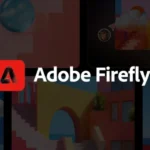Investing is a complex process that not everyone can do. While people invest their money in gold and real estate, they conceive of them as the safest investments compared to equities. However, within equity investments, investing in stocks is less risky than investing in unlisted companies or startups.
Startup investments are a very complex and risky process because there is less liquidity, and the chances of success are too low in that. Starting from angel investing to venture capital, they all have to deal with a very high amount of risk compared to any other asset class or investment avenue.
Usually, the role of angel investor in India was distinct and rare: a wealthy individual, sometimes an ex-entrepreneur, occasionally a business family, placing early bets. Today, the shape of that ecosystem has shifted dramatically.
In this new phase, the founders themselves are becoming the angels, and that shift is reshaping how startups are funded, grown, and positioned. Entrepreneurs and founders becoming angel investors and VCs is a positive sign and development for the country. Their experience, networks, and empathy, and often a founder-centric viewpoint that institutional VCs may lack.
This article explores that dynamic: why founders are investing, how they invest, what they look for, and who the major players are. Let’s understand the whole narrative behind this.
To understand why founders today are turning into investors, we must first take a step back and see how India’s investment landscape looked just a decade or two ago. In the early 2000s, India’s startup ecosystem was still in its infancy. Venture capital was largely foreign-driven by global funds like Sequoia Capital, Accel, Tiger Global, and SoftBank. Domestic participation was minimal. A handful of Indian angels, such as Rajan Anandan (then Google India MD), Sanjay Mehta, and Sharad Sharma (of iSPIRT), were among the very few writing early checks to founders.
But things began to change dramatically post-2014.
The rise of the first generation of successful Indian startups such as Flipkart, Ola, Zomato, Paytm, Zerodha, Snapdeal, and other startups didn’t just create wealth; it created a new breed of operators-turned-investors. These were individuals who had lived through the pain of building from scratch, hiring, scaling, fundraising, and failing and emerged with both capital and conviction.
As per a report by Hurun India (2023), India now has over 1,800 active angel investors and nearly 1,100 venture funds (domestic + foreign) operating in the country. This is a giant jump compared to previous years. Now this is where we need to dive deeper into a certain category of investors who are founders of big companies.
The Zerodha founders, Nikhil and Nithin Kamath, are not just celebrated entrepreneurs; they’ve also built a strong reputation as thoughtful and disciplined investors. Over the past few years, Nikhil Kamath has emerged as one of India’s most active startup investors, backing a diverse range of companies across EVs, clean energy, fintech, gaming, food & beverage, and consumer brands.
Through his personal investments and platforms like Rainmatter (focused on fintech and sustainability) and Gruhas (his proptech and impact investment firm), Nikhil has supported over 120 startups. His initiatives, like WTFund, which empowers founders under 25, reflect his commitment to nurturing India’s next generation of entrepreneurs.
Nithin Kamath, too, has actively invested in multiple early-stage ventures through Rainmatter, particularly those in health, finance, and wellness, including startups like Ditto, Smallcase, and Ultrahuman.
Another powerful example is Kunal Shah, the founder of CRED, who has become one of the most reputed angel investors in the Indian startup ecosystem. Known for his sharp insights on consumer psychology and behavioral economics, Kunal has backed over 100 startups, including Razorpay, Unacademy, Smallcase, Jupiter, Innov8, and Pocket Aces. Kunal focuses on founder clarity, intent, and long-term thinking.
Similarly, Kunal Bahl and Rohit Bansal, the founders of Snapdeal, have institutionalized their investing approach through Titan Capital. They were among the earliest backers of several major startups like Mamaearth, Ola Electric, Razorpay, and UrbanClap (now Urban Company).
Ritesh Agarwal, the founder of OYO Rooms, has also joined this league of new-age founder-investors. He focuses on consumer tech, global SaaS, and fintech startups, and having scaled OYO to over 80 countries, Ritesh brings a global lens to his investments, often mentoring founders building for international markets.
Deepinder Goyal, the founder and CEO of Zomato, has also quietly built an impressive portfolio of startup investments. His bets include Third Wave Coffee, Shiprocket, Hyperface, Wint Wealth, Bira 91, and AdonMo. Deepinder often invests in founders solving real, large-scale problems with strong business fundamentals.
And then there’s Vijay Shekhar Sharma, the founder of Paytm, who has been a long-time believer in India’s digital potential. He also invested in companies that are into technology, finance, and mobility across India.
Now there are many other entrepreneurs who have built that impact and started giving to the country by backing more early-stage startups.
This trend is so positive and helpful, as it helps in employment opportunities, economic development, and nurturing talent in India. As India’s startup ecosystem matures, this founder-to-founder funding culture could very well become its strongest foundation.
Also Read: The Harsh Reality of India’s Startup Ecosystem: Why 11,000+ Startups Shut Down in 2025










